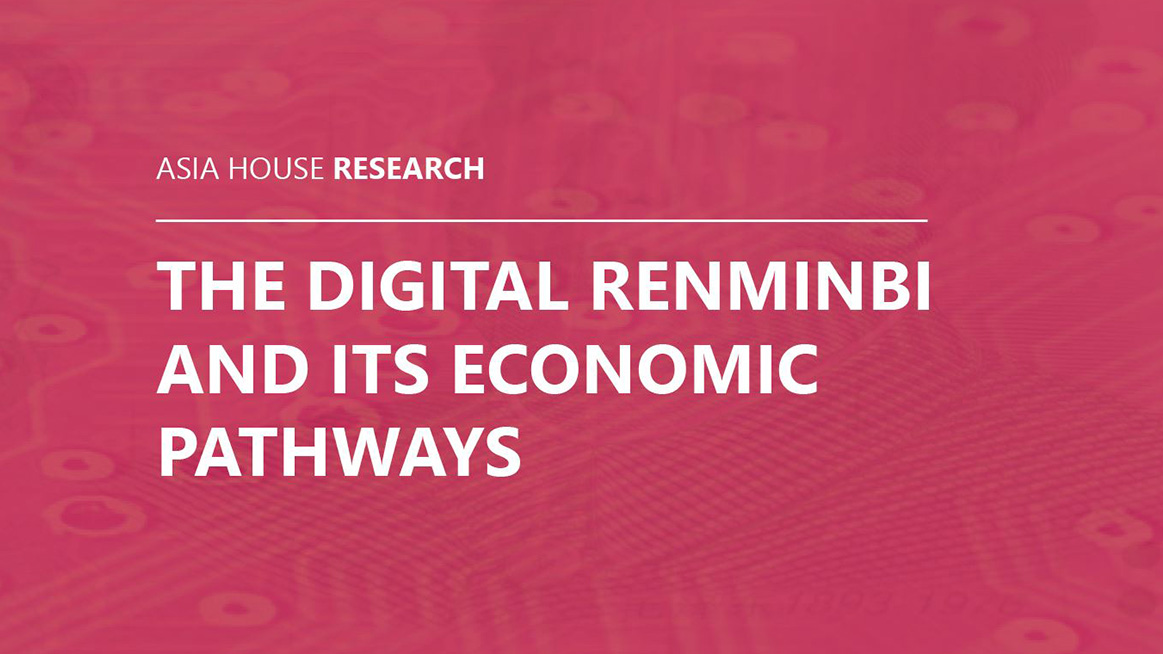Driving commercial and political engagement between Asia, the Middle East and Europe
Driving commercial and political engagement between Asia, the Middle East and Europe
Driving commercial and political engagement between Asia, the Middle East and Europe

In the first report of the new Asia House Political Economy Research Series, we take a look at China’s progress in developing a central bank digital currency and the economic and geopolitical implications of a digital RMB.
REPORT AUTHOUR
 Phyllis Papadavid, Head of Research and Advisory
Phyllis Papadavid, Head of Research and Advisory
Phyllis Papadavid is a leading international economist and financial strategist with extensive research experience across the private and public sectors. She leads Asia House’s Research and Advisory work, driving the organisation’s research agenda and directing projects.
Central bank digital currencies (CBDCs) could constitute an indispensable policy tool. In time, they could replace cash altogether, crowding out commercial banks and other payment platforms, thus re-shaping the financial system. China’s CBDC programme is innovative and advanced in its development compared with other pilot projects. It stands to re-shape the domestic economy, and China’s cross-border relationships, potentially reducing US dollar dominance. And yet, despite China’s CBDC being a significant development, there are preconditions to its future as a global reserve currency. These include being freely flexible, linked to a stable and liquid financial market that has depth, breadth and scale, and for the renminbi (RMB) to demonstrate political resilience. This paper examines the pathways through which digitalisation could bolster the dominance of the renminbi in the global financial system.
Key takeaways:
– China’s digital currency development is advanced compared with pilots by other central banks and, as such, it is likely to have first-mover advantage.
– The digital renminbi has the potential to reshape China’s domestic economy and challenge the dominance of the US dollar.
– The digital RMB could have profound geopolitical implications, reducing the effectiveness of US sanctions and potentially extending Chinese influence within emerging Asian markets.
– It may also accelerate the liberalisation of China’s bond market.
– The COVID-19 crisis could catalyse greater acceptance of the renminbi as a global reserve currency.
JOIN OUR MAILING LIST to receive Asia House insights, analysis and research direct to your inbox.
FIND OUT MORE about Asia House’s research and advisory services.
